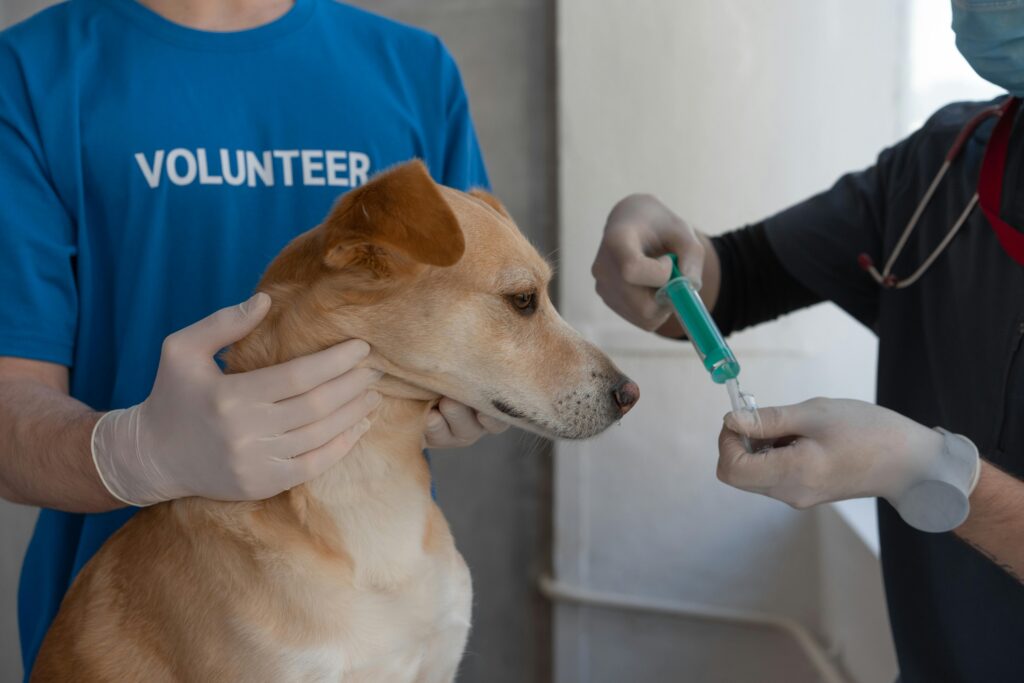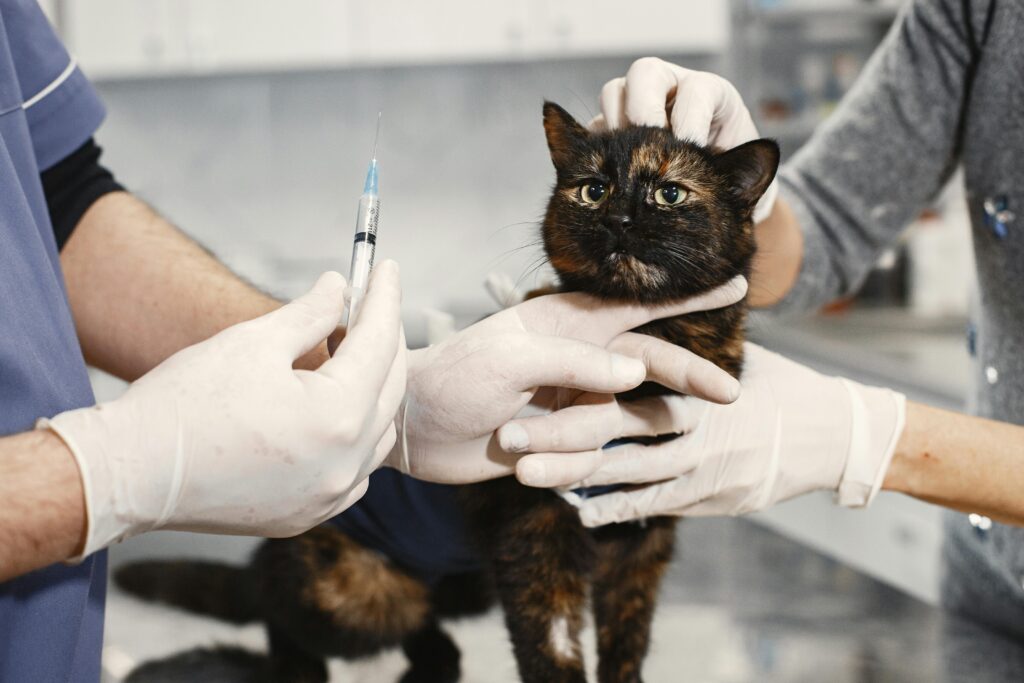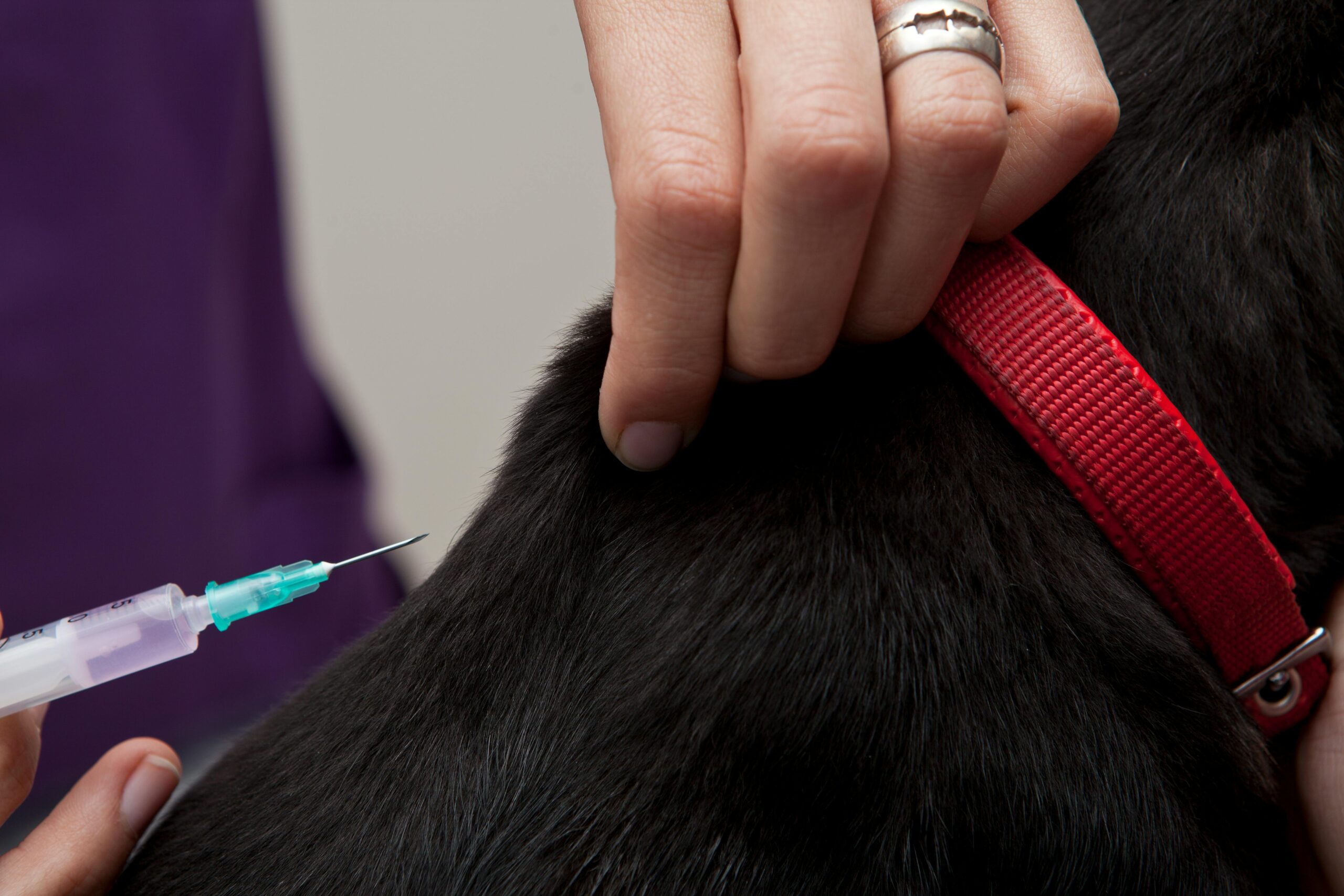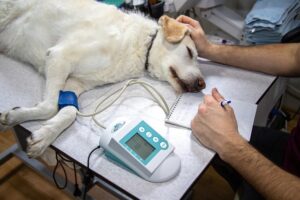Ensuring that your pets are properly vaccinated is among the most important aspects of keeping them healthy and in your life for years to come. Vaccines can save your dog or cat from the deadly effects of these diseases, and if an unvaccinated pet develops one, it can cause other dogs or cats to get the disease. These diseases could also be spread to you (some zoonotic)! However, as a caring pet parent, you may wonder: When should my pet be vaccinated? Why Are Vaccines Important for my dog or cat? Then, what should I do after taking my pet for vaccination?
This write-up is going to discuss the required vaccines your pets need, the time period they are to receive them and what needs to be done post-vaccination.
Understanding Pet Vaccines
What vaccines do is get your pet´s own immune system to be able to recognize a disease and then fight it if the need ever arises? They include antigens that simulate disease-causing organisms but do not actually produce the disease. When they get vaccinated, their immune system gears up to protect themselves from these infections if and when they happen in the future.
Types of vaccines: Vaccines are generally classified into two types:
1. Core vaccines: These are the fundamental vaccination shots required for all pets against serious infectious diseases essential because of the presence and severity of disease as well as the potential risk to humans headed by governmental agencies.
2. Non-core vaccines—These are given depending on your dog or cat’s lifestyle, living and travel conditions, and disease exposure risk.
Vaccinations for Dogs

Core Vaccines for Dogs:
1. Rabies Vaccine:
- Background: Rabies is a preventable viral disease of mammals most often transmitted through the bite of a rabid animal. The vast majority of its victims are dogs, but cats and cattle also suffer from the disease. It is also transmissible to humans.
- When to Give: Give the first of two rabies shots at anywhere from 12–16 weeks and then a second one one year later. After that, the majority of dogs should be vaccinated every 1–3 years (according to state law and which vaccine is administered).
2. Distemper, Adenovirus (Canine Hepatitis), and Parvovirus (DHPP):
Purpose: This multi-vaccine is indicated for:
- Distemper: A highly contagious and often fatal disease that affects the respiratory, gastrointestinal, and central nervous systems.
- Adenovirus (hepatitis): Causes a potentially fatal liver disease known as infectious canine hepatitis.
- Parvovirus: A highly contagious disease with the capacity to take a life due to illness that affects the gastrointestinal tract.
When to Give: Start at 6–8 weeks of age with a final booster usually available at 16 weeks. The series is boosted at 1 year and then every 1-3 years.
3. Leptospirosis:
- Purpose: Leptospirosis is a bacterial disease that affects the liver and kidneys and can be transmitted to humans. It is less frequent in regions with sluggish water or old animals.
- Vaccinations: It’s generally part of the DHPP vaccine but can be given alone. This vaccine is timed similarly to other core vaccines, meaning it should start at 8–12 weeks with annual boosters.
Non-Core Vaccines for Dogs:
1. Bordetella (Kennel Cough):
- Goal: Bordetella bronchiseptica is responsible for kennel cough, a respiratory infection frequently observed in structures where dogs are within close proximity (such as veterinary hospitals, grooming facilities, and dog parks).
- When to Give: Given at ages 8-16 weeks, this vaccine is recommended for dogs that play often with other dogs. It may need boosters every 6-months to a year based on exposure risk.
2. Lyme Disease:
Target: In dogs, this tick-borne disease leads to arthritis, a febrile disease that causes renal damage.
When to Administer: At 9–12 weeks, Ideally it should be boosted at 2–4 Weeks later. For high-risk areas or where ticks are a concern, annual boosters are advised for dogs.
Vaccinations for Cats

Core Vaccines for Cats:
1. Rabies Vaccine:
- Purpose: Even though none of the other diseases are as fatal for cats (or humans) as rabies if it is present in your area, vaccination against rabies will become a legal necessity as well.
- When to Give: Kittens usually get their first rabies vaccines at 12 or 13 weeks of age, and then a booster in one year. At that point (and recommendations can vary between veterinarians, so talk to yours), the vaccine is repeated every 1–3 years, depending on which vaccine you choose and local laws.
2. Vaccine for Feline Viral Rhinotracheitis (FVR), Calicivirus (FCV) and Panleukopenia (FPL):
Purpose: This is a combination vaccine that protects against:
- FHV (Feline viral rhinotracheitis): A respiratory virus that can cause permanent infections.
- Calicivirus: Triggers respiratory infection and oral lesions.
- Panleukopenia: Also called feline distemper, is a highly contagious and fatal viral disease that infects the blood cells resulting in fever, vomiting, and extreme dehydration.
When to Give: FVRCP is started on kittens at 6–8 weeks and boosted every 3–4 weeks until the kitten is over 16 weeks old. Then it is given at one year old and afterwards every 1–3 years depending on the vaccine.
3. Feline Leukemia Virus (FeLV):
Objective: FeLV remains a common and fatal infectious agent in cats, causing significant immunosuppression and predisposing to secondary infections.
When to Give: First FeLV vaccine at 8-12 weeks, boosted after 3-4 weeks; first Feline Leukemia (FeLV) vaccine at 9 weeks with a booster at 12. Anything that goes outside or lives with a cat that is positive for FeLV, should be boosted annually.
Non-Core Vaccines for Cats:
1. Bordetella:
Motivation: Bordetella bronchiseptica induces an upper respiratory infection in cats akin to that seen with kennel cough.
Administration: It is less frequently recommended for cats, but may be indicated in high-risk environments (e.g. shelters or multicat households).
2. Chlamydia:
Objective: Chlamydia felis is known to cause conjunctivitis and respiratory infections in cats.
When to Give: Given at 9-12 weeks of age, this is a vaccine primarily for cats living in group housing situations.
General Vaccination Schedule For Pets
The vaccination schedule for humans is different from that of cats and dogs, who are vaccinated when they are puppies or kittens. The majority of core vaccines are given as a monthly series to be administered during the first few months of life, and then annually or every three years (the most common intervals for the various specific vaccines).
Puppies: Core vaccines generally begin before the puppy is 8 weeks old, and then are given every 3 to 4 weeks up until about sixteen weeks of age.
Kittens: Typically begin core vaccines at 6–8 weeks old and follow the same protocol, ending around 16 weeks.
Adult Dogs and Cats: Booster shots for core vaccines can be given annually throughout their lifetime with your vet—a schedule that is particularly useful for older dogs and cats.
What to Do After Vaccination?
After your pet has been vaccinated, be sure to watch them for any potential side effects and adhere to whatever care provisions are necessary so that they remain comfortable, healthy, and safe. Here’s what to do:
Check Common Side Effects
Mild Reactions: It’s common for pets to experience mild side effects after vaccinations, such as:
- Pain or a lump at the injection site
- Mild fever or lethargy
- Decreased appetite
- Normally, these symptoms last no more than a day or two. This will add additional comfort, as well as the use of a cool compress on the injection site to minimize swelling when required.
More Serious Reactions: Though unlikely, more true allergic reactions (ex: anaphylaxis)
- Vomiting or diarrhea
- Allergic Reactions: Facial swelling, hives, or difficulty breathing
- Lethargy or fever lasting longer than 24 hours If you observe any of these symptoms, contact your vet immediately because they may require care.
Post-Vaccine Care Tips:
- Rest and Hydration: Once you’ve vaccinated your pet, it might be tired, so let it rest and drink purified water. Make a quiet, comfortable place for them to rest Make sure they have access to fresh water, which will help them stay hydrated.
- Avoid Strenuous Activity: Do not allow your pet to exercise or play for restricted activity the rest 24-48 hours after vaccination to prevent exertion while their immune system is working to the vaccine.
- Watch Their Eating Habits: Your pet may experience a decreased appetite right after getting vaccinated. Feed small meals and observe food intake. If your cat has lost their appetite and not eaten for longer than 24 hours, consult with your vet.
- Examine the Injection Site: This region might be a little bit sore or swollen, but if it gets extremely swollen, red, or warm, get in touch with your vet. Abscesses or infections at the injection site.
Follow-Up Appointments
Follow up with your vet if your pet needs a series of vaccinations so you can stay on schedule. Delivering vaccines in a staggered schedule allows time for the dogs to produce antibodies and become immune, which ensures that both doses function effectively.
Conclusion
The Dangers of Not Vaccinating Your Dog or Cat By Angela Colley Cats, DogsVaccinating your best friend is a significant part of keeping them healthy and safe from the worst diseases. Knowing the core and non-core vaccines, their administration time and follow-ups after the vaccination will guide you in providing proper care for your pet. Discuss this with your vet to determine what vaccines should be given, as factors such as age, lifestyle, and local risk will all alter the recommendations.
Watch for signs of any reactions after each vaccine but remember, that almost all animals recover without issue. Proper post-vaccination care will keep your furry friends as comfortable and healthy as possible so that you can spend a good deal more time with them.




